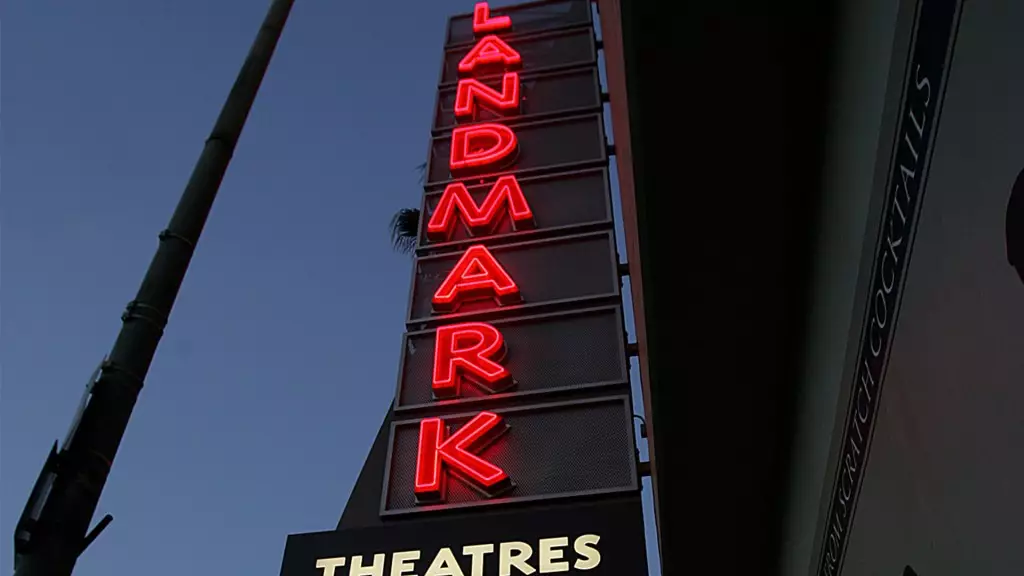Landmark Theatres, once a beacon of arthouse cinema in the U.S., has descended into a troubling spiral of financial despair, a scenario exacerbated by the COVID-19 pandemic, soaring interest rates, and industry-wide strikes in Hollywood. These elements culminated in a dramatic decline in the company’s valuation, costing hundreds of millions of dollars, as highlighted in revelations from a deposition by Charles Cohen, the owner of Landmark. Recent court proceedings in New York have brought these financial struggles to light, revealing that Cohen is deeply entwined in a web of debt and legal challenges stemming from his financial mismanagement. Specifically, Cohen faces a ruling that mandates him to auction off properties—including Landmark theatres—to satisfy a loan default to Fortress Credit Corp., the lender at the center of this legal turmoil. With an auction slated for November 8, the time is running out for Cohen, who maintains a sliver of hope for resolution through settlement negotiations.
The ongoing litigation underscores the fragility of Cohen’s financial standing, particularly after he accepted a personal loan guarantee amounting to $187 million. This staggering sum has left him with considerable liabilities and a dire need to liquidate assets at auction. Reports from Fortress indicate that the properties targeted for auction are in poor financial health, raising fears that the anticipated proceeds may not even cover the outstanding debts. Amidst this precarious situation, Fortress aims to prevent Cohen from transferring any personal assets, arguing that he has recently engaged in significant asset transfers to safeguard his finances. Such moves include the controversial transfer of a $20 million home to a trust and the maneuvering of luxury vessels valued at over $50 million, potentially inhibiting Fortress’s ability to recoup its losses. Fortress’s efforts to ensure a favorable outcome emphasize the high stakes in this legal battle, revealing an unflattering portrait of financial strategy rooted more in self-preservation than in accountability.
Industry-Wide Pressure: The Aftermath of a Pandemic
Cohen’s deposition paints a grim picture, acknowledging substantial revenue losses across Landmark’s operations. He disclosed an alarming $14 million negative net revenue for Landmark and an approximately $8.5 million loss for Curzon, the British arthouse chain he acquired shortly after Landmark. The crippling effects of COVID-19 are evident, with prolonged theater closures in 2020 adversely impacting the exhibition sector. Further complicating the landscape, the recent strikes by Hollywood writers and actors halted film production for months, leading to a drastic decrease in available content for theaters. Cohen candidly discussed these challenges, noting that they have fundamentally altered the moviegoing experience and resulted in a notable decrease in theater attendance. This confluence of factors has led to an alarming devaluation of Landmark’s assets, estimated in the hundreds of millions.
As the company navigates an uncertain path ahead, strategies for recovery appear fragmented at best. Landmark has attempted to adapt by integrating mainstream movie offerings into their program alongside arthouse selections, a strategy similar to that of competitors like Alamo Drafthouse. Yet, this response has not been without its own set of challenges, as seen by the closure of their flagship LA location in May 2022. This closure has left a significant void for dedicated arthouse filmgoers, signaling a need for Landmark to redefine its niche in a rapidly evolving industry landscape. As Landmark enters a phase of transformation, it is critical that they find ways to attract young audiences and deploy creative marketing to secure a viable future.
The unfolding saga of Landmark Theatres serves as a poignant reminder of the fragility of business amidst unpredictable societal changes. Rising financial pressures, coupled with an ever-evolving entertainment landscape, have forced the company into an existential crisis. The quest for a financial settlement looms large as Cohen confronts mounting debts and ongoing litigation. As Landmark faces its most significant challenges yet, its fate may well hinge on its ability to navigate the complexities of post-pandemic recovery while attempting to restore its place in the cinematic world. Unquestionably, the coming months will be pivotal in determining not just the future of Landmark Theatres but also the broader implications for arthouse cinema in an industry still grappling with its new realities.

